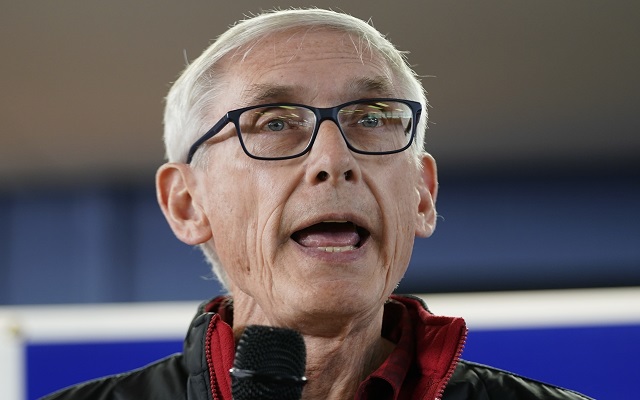Evers vetoes a Republican-backed bill targeting PFAS chemicals

By SCOTT BAUER Associated Press
MADISON, Wis. (AP) — Wisconsin Gov. Tony Evers vetoed a Republican bill Tuesday that would have created grants to fight pollution from “forever chemicals” and took the unusual step of calling the GOP-controlled budget committee into meeting to approve spending $125 million to deal with contamination.
Evers has only called a meeting of the Legislature’s Joint Finance Committee once before, a rarely used power afforded the governor under state law.
Evers and Republicans have not been able to agree on the best way to combat pollution from PFAS, chemicals that have polluted groundwater in communities across the state. Evers and Republicans have both said that fighting the chemicals is a priority, but they haven’t been able to come together on what to do about it.
Evers said it was “just wrong” that lawmakers have not approved spending the $125 million that was allocated to combat PFAS in the state budget passed last year.
“There is no reason Wisconsinites should have to wait any longer than they already have for these funds to be released,” Evers said in a statement. “This is about doing the right thing for our kids, our families, and our communities, and it should’ve been done a long time ago. This must get done.”
Republican Sen. Eric Wimberger, who cosponsored the bill, called the veto “shameful” and said he was holding the funding hostage.
“Every person in Wisconsin deserves to have clean, safe drinking water, and the Governor denied them that,” Wimberger said in a statement.
Evers said that addressing PFAS contamination remains a priority for him and the bill he vetoed “is not good enough.”
Evers has repeatedly called on the Legislature’s GOP-controlled budget committee to release the $125 million in funding. He called an April 16 meeting for them to consider it again, but Republicans have shown no indication they will act.
The bill Evers vetoed called for spending the money on grants for municipalities, private landowners and waste disposal facilities to test for PFAS in water treatment plants and wells. Landowners with property that became contaminated through no fault of their own also would have been eligible for grants.
Evers said in his veto message that he objected to the bill because it would limit the Wisconsin Department of Natural Resources’ authority to hold polluters liable.
Wimberger, the bill’s sponsor, said Evers wants to create a “slush fund” for the DNR, rather than funnel the $125 million through the program spelled out in the bill.
Multiple environmental groups urged Evers to veto the legislation, saying the limits on DNR enforcement are a deal-breaker. The Wisconsin Towns Association, the League of Wisconsin Municipalities, and the Wisconsin Counties Association supported the bill.
Republican bill authors argued that the limits are necessary to protect landowners who aren’t responsible for PFAS pollution on their property from fines.
PFAS, short for per- and polyfluoroalkyl substances, are man-made chemicals that don’t easily break down in nature. They are found in a wide range of products, including cookware and stain-resistant clothing, and previously were often used in aviation fire-suppression foam. The chemicals have been linked to health problems including low birth weight, cancer and liver disease, and have been shown to make vaccines less effective.
Municipalities across Wisconsin are struggling with PFAS contamination in groundwater, including Marinette, Madison, Wausau and the town of Campbell on French Island. The waters of Green Bay also are contaminated.






